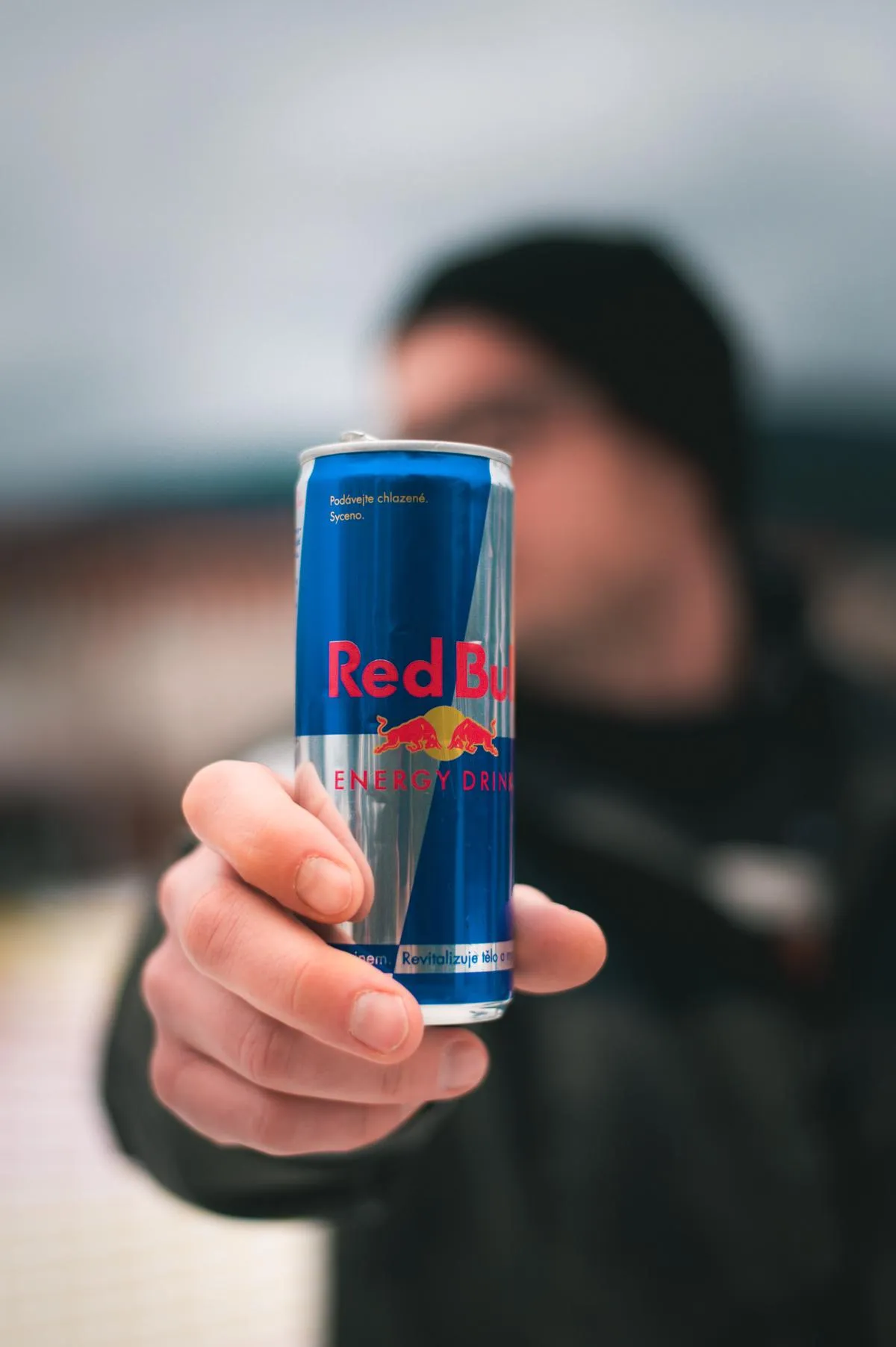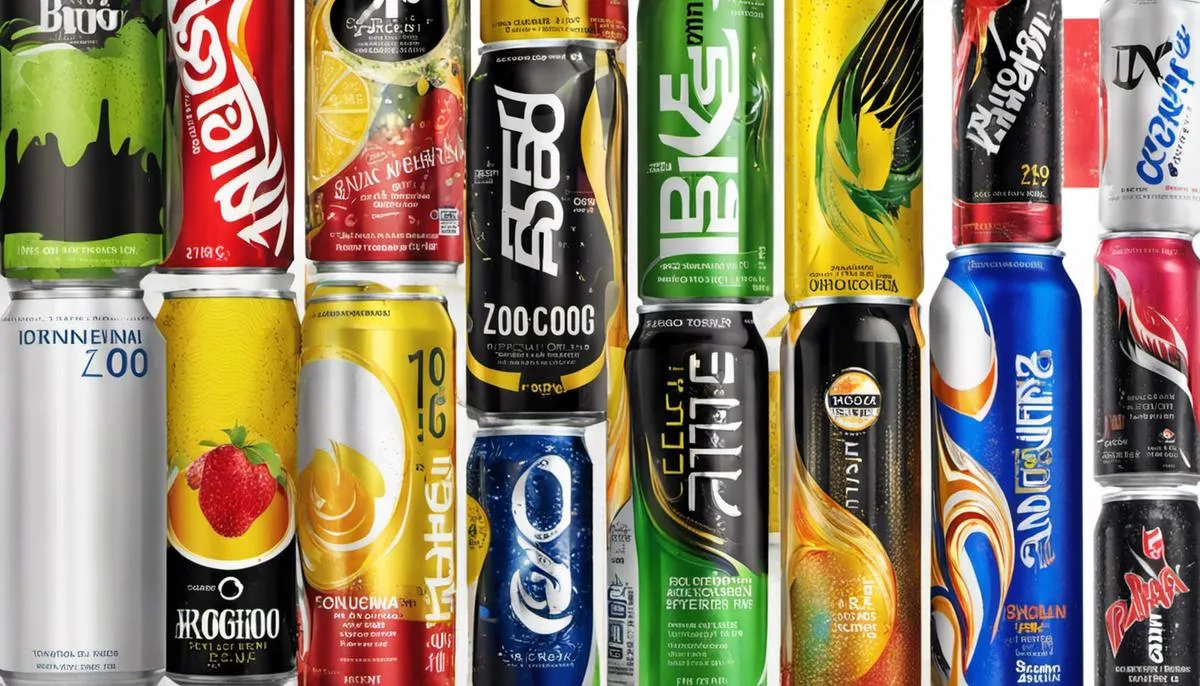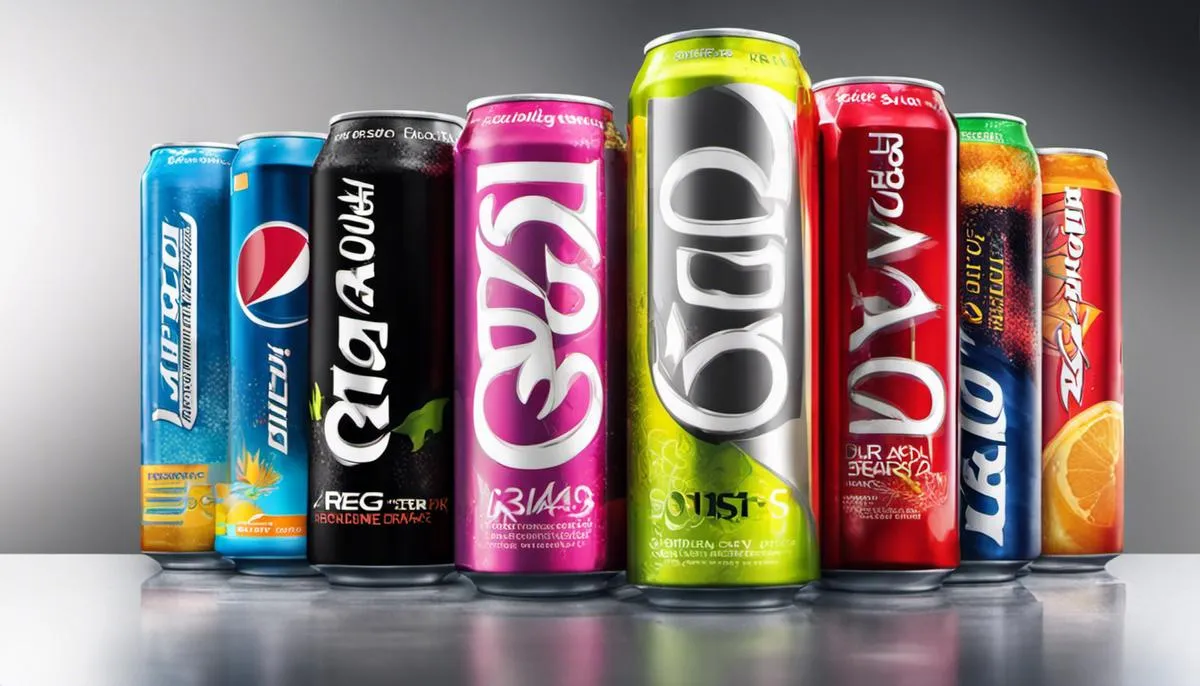Energy drinks have become a staple in many diets, offering a quick boost of energy when we need it most. However, as health consciousness rises, more people are reaching for zero-calorie varieties. But what does ‘zero-calorie’ truly mean in the context of these popular beverages? This deep-dive into the world of zero-calorie energy drinks offers insight into how they provide energy without contributing to our daily calorie intake, their nutritional value and impact on our health, as well as their effects on athletic performance. Furthermore, this comprehensive review will compare popular brands, guiding you to make an informed choice that suits your diet and lifestyle.
Understanding Zero-Calorie Claims
Understanding Zero-Calorie Claims
In examining the concept of zero-calorie energy drinks, it’s crucial to understand what zero-calorie means in the context of food labeling. And the food labeling industry is, for the most part, loosely regulated. This means a product may claim to be zero-calorie even though it technically contains calories. As per FDA regulations, a food item can be labeled zero-calories as long as it provides fewer than five calories per reference amount customarily consumed and per labeled serving.
Energy Sources in Zero-Calorie Energy Drinks
‘Zero-calorie’ energy drinks typically derive ‘energy’ from ingredients other than traditional caloric nutrients, such as protein, fat, and carbohydrates. These ingredients, while low in or empty of calories, still contribute to the heightened energy levels consumers experience after consumption. The outcome is an energy boost without substantial calorie intake.
Caffeine in Zero-Calorie Energy Drinks
One of the most common ingredients in these energy drinks is caffeine. Caffeine is a natural stimulant, which means it temporarily quickens some of your body’s processes. When consumed, caffeine targets your brain and changes the perception of fatigue, promoting alertness and improved concentration. Moreover, caffeine contains almost no calories, which explains its extensive use in zero-calorie energy drinks.
Taurine in Zero-Calorie Energy Drinks
Another ingredient often found in zero-calorie energy drinks is taurine. Taurine is an amino acid that your body naturally produces. It plays a crucial role in several of your body’s functions, including the regulation of water and mineral salt concentrations in your blood and supporting the general function of your central nervous system and eyes. Like caffeine, taurine does not contain any calories.
Artificial Sweeteners in Zero-Calorie Energy Drinks
To enhance the taste of these zero-calorie drinks without adding calories, manufacturers usually rely on artificial sweeteners. These sweeteners have a level of sweetness many times that of traditional sugar, yet they add minimal or no calories to the drink. Commonly used varieties include aspartame, sucralose, and acesulfame potassium (ace-k). However, it’s worth noting that while these sweeteners contribute to the zero-calorie claim, their acceptance and health impact are topics of ongoing debate in the health and scientific communities.
Unraveling the Mystery of Zero-Calorie Energy Drinks
At first glance, the concept of zero-calorie energy drinks providing energy without contributing a significant number of calories to your daily intake may seem paradoxical. However, their energy-boosting properties derive predominantly from non-caloric stimulants such as caffeine and taurine. Furthermore, the addition of non-nutritive, zero-calorie sweeteners ensures that these drinks are still tasty, without the burden of additional calories.

Health and Nutritional Factors of Zero Calorie Energy Drinks
An In-depth Look at the Nutritional Content of Zero Calorie Energy Drinks
Many perceive zero-calorie energy drinks as healthier options in comparison to traditional sugar-sweetened beverages. Although they forgo ingredients like high fructose corn syrup or sucrose, they are not devoid of substance. In fact, they contain a variety of ingredients developed specifically for delivering that much-needed energy boost. Among these are caffeine, taurine, B vitamins, and amino acids, all of which underline the fact that ‘zero calorie’ does not equate to ‘zero substance’.
Potential Effects on Weight
Zero calorie energy drinks could potentially affect your weight. As they have no calories, they might not cause weight gain directly. However, the presence of artificial sweeteners, like aspartame or sucralose, can lead to increased sugar cravings. Some research suggests that consuming these sweeteners might disrupt the body’s natural ability to regulate calorie intake, resulting in increased appetite and, subsequently, potential weight gain.
Dental Health Implications
The acid content in zero calorie energy drinks is another issue to be considered. Many of these drinks are highly acidic which can lead to tooth decay and enamel erosion. Over time, this could result in cavities and other dental issues. Drinking these beverages through a straw and maintaining good oral hygiene can help mitigate some of these effects.
Influence on Sleep Patterns
Caffeine, the central nervous stimulant heavily present in energy drinks, undoubtedly has effects on sleep patterns. Consuming these drinks can make it harder to fall asleep and reduce the quality of sleep. Regular consumption, particularly in the evening or close to bedtime, can lead to chronic sleep deprivation and associated health issues like fatigue, reduced immune function, and mood changes.
Impact on Overall Physical Wellbeing
Beyond the immediate energy boost, consistent consumption of zero calorie energy drinks can potentially bring about a host of other health concerns. These include heart palpitations, high blood pressure, dehydration, and even kidney problems caused by the high level of caffeine and other stimulants. Furthermore, when mixed with alcohol, these drinks can mask the depressant effects of alcohol, leading to excessive alcohol consumption and related health risks.
Understanding the consumption of zero calorie energy drinks, akin to any dietary supplement or food, entails a focus on moderation. These beverages may offer a fleeting surge of energy, but they are not meant to replace a balanced diet, sufficient sleep, and regular athletic activity. If you have any concerns related to diet or health, it’s always recommended to seek advice from a healthcare professional or nutritionist.

Effects on Exercise and Athletic Performance
The Role of Zero-Calorie Energy Drinks in Athletic Performance
The consumption of zero-calorie energy drinks is notably common amongst athletes due to their perceived capacity to enhance performance and raise energy levels. Numerous scientific investigations have delved into the effects of these drinks consumed before, during and after physical activities. These studies aim to ascertain how they potentially influence endurance, power, and recovery periods.
Increased Endurance
Zero-calorie energy drinks are often packed with stimulants, most commonly caffeine. Studies have shown that caffeine can significantly improve endurance capacity and overall exercise performance. It achieves this by lowering perceived exertion, reducing fatigue, and enhancing cognitive function. However, it is worth noting that individual responses to caffeine vary widely. Although some people may experience noticeable performance benefits, others may not.
Enhanced Strength Power
Another ingredient commonly found in zero-calorie energy drinks is Taurine, an amino acid believed to help with muscle contractions and the removal of waste products that lead to muscle burn. Several studies indicate that Taurine can improve strength and reduce muscle damage, suggesting a potential link between zero-calorie energy drinks and enhanced strength power.
Improved Recovery
Zero-calorie energy drinks often include electrolytes and B-vitamins as well. Electrolytes aid in hydrating the body and maintaining pH balance, contributing to faster recovery after intense training or competition. B-vitamins come into play with such tasks as energy production and repair of damaged cells, which can expedite recovery times.
Despite these potential benefits, it is important to consider the potential downsides as well. Zero-calorie energy drinks often contain artificial sweeteners, which have been linked to a range of health problems, including an increased risk of metabolic syndrome and related conditions like heart disease, stroke, and type 2 diabetes. They are also more likely to lead to dehydration, disturb sleep patterns, and cause a variety of gastrointestinal issues.
From improved endurance and muscle strength to faster recovery, zero-calorie energy drinks may offer several potential benefits. However, consumers, especially athletes, should carefully weigh these pros against the possible detrimental effects such drinks could have on their health. It is recommended to consult with a healthcare professional or a nutritionist before incorporating zero-calorie energy drinks into your workout regimen to ensure a healthy balance.

Comparing Brandsand Making Informed Choices
Digging Deeper into Zero-Calorie Energy Drinks
Let’s unpack what zero-calorie energy drinks are. These beverages, packed with stimulants like caffeine, promise to enhance physical and mental capabilities without contributing any calories to your diet. Promoted as a healthier choice compared to their high-calorie counterparts, they are a popular option for those conscious of their calorie intake. The market is flooded with various brands, each touting a unique mix of ingredients designed to boost stamina and sharpen focus.
Comparing Popular Zero-Calorie Energy Drink Brands
Considering the flavor, price, ingredient profile, and more, it’s essential to compare the most popular brands of zero-calorie energy drinks. One of the most renowned may be Monster Energy Zero Ultra. With a refreshing, slightly citrusy flavor, it is marketed as a less sweet, lighter tasting, zero calories, and zero sugar drink. It is affordably priced and widely available.
Red Bull Total Zero is another significant competitor, offering the classic Red Bull flavor with no sugar, no carbs, and no calories. It is slightly more expensive, and its smaller cans might not offer as much value for money, but Red Bull enjoys significant brand loyalty.
Rockstar Pure Zero also provides consumers with full energy, guilt-free flavored options. Similar in price to Monster Zero Ultra, its flavor profile might be more attractive to those who prefer fruitier beverages.
Understanding the Ingredient Profile
In choosing a zero-calorie energy drink, it’s essential to consider the ingredient profile. Main components include caffeine, taurine, B vitamins, and herbal stimulants. Artificial sweeteners such as Sucralose or Aspartame are often used to deliver sweetness without the caloric content. It’s important to note the caffeine content as it can vary between brands, and excessive intake can lead to side effects like jitters, nausea, and anxiety.
Making an Informed Choice
In making an informed choice, considering dietary needs and lifestyle is necessary. For those sensitive to artificial sweeteners, checking the ingredient list is critical since aspartame and sucralose are common. For endurance athletes or those requiring extended energy, brands offering slow-releasing caffeine variants may be desirable.
Some consumers might prioritize flavor and choose brands offering more variety, while others might focus on affordability. It’s always critical to balance dietary requirements, taste preferences, lifestyle needs, and budget when selecting a zero-calorie energy drink.
The Importance of Moderation
While zero-calorie energy drinks can provide a quick and convenient energy boost, it’s crucial to consume them in moderation. Overconsumption can lead to health concerns, including heart palpitations, nervousness, and poor sleep quality, among others. While they are a lower-calorie option than other energy drinks, that doesn’t make them free from potential health risks associated with excessive caffeine and artificial ingredients. To ensure safe consumption, it’s advisable to respect the recommended daily caffeine limits.

The choices we make greatly impact our health, our energy levels and our overall wellbeing. This clearer understanding of zero-calorie energy drinks, their nutritional profile, and potential effects on our bodies provides a more solid basis to decide whether to include them in our daily routine or not. You may encounter various zero-calorie energy drink brands in the market, with differences in flavor, price, and ingredient profiles. Use this information wisely to select products that align with your dietary needs and lifestyle, allowing you to fuel your body appropriately and potentially enhance your athletic performance without compromising your health in the long run.








